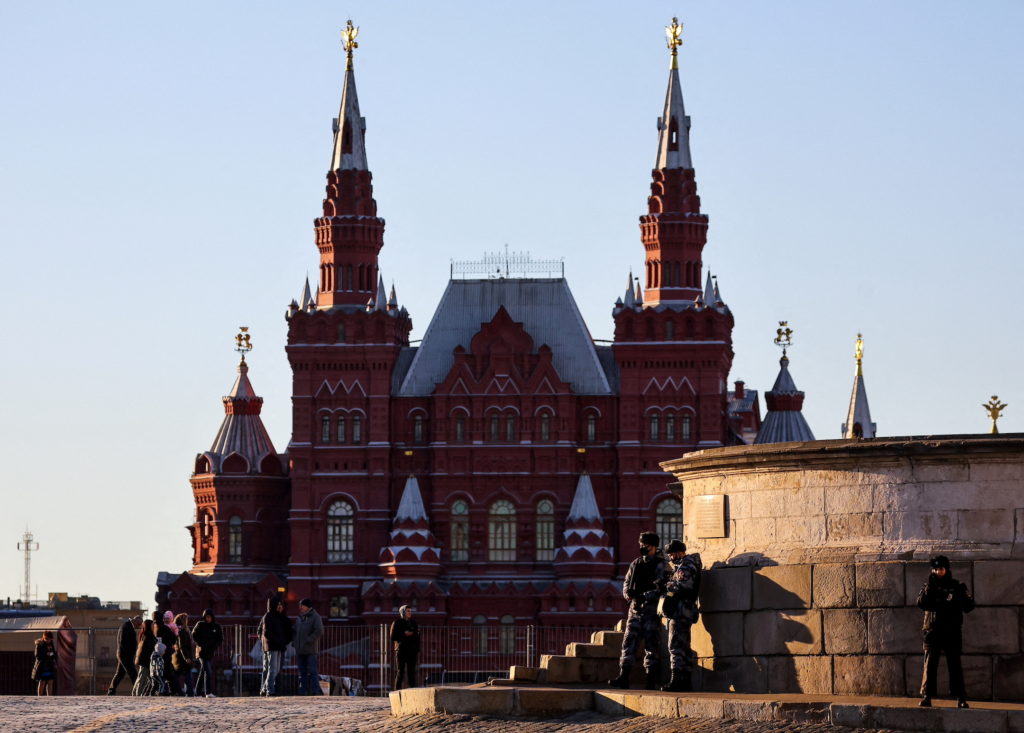How Western sanctions are affecting the lives of Russians

Ryan Chilcote:
Some of what will happen next has happened before. In 1998, the ruble lost two-thirds of its value over a month, accelerating inflation to 80-plus percent, and Boris Yeltsin's resignation a year later.
Then, after a decade of unprecedented economic growth, the ruble fell again in 2014 after Vladimir Putin sent troops to annex Crimea. According to official statistics, Russian prices rose by 2.1 percent last week, the kind of inflation central banks aim to see over a year. The official annual inflation rate is running above 12.5 percent.
Auchan, a French chain with more than 300 supermarkets here, is well-stocked for now. One Russian economist says the country may be headed for Soviet-style inflation, where the prices don't rise, but goods disappear.
Just like Americans, Russians are accustomed to an extraordinary range of groceries and assortment in their supermarkets, and yet, in this one, two days running, zero white sugar.
Videos circulating on social media show elderly Russians, who remember Soviet shortages, swooping sugar. The price rose nearly 13 percent last week. The government says there's no shortage. Sugar exports are now banned.
The opening salvo in the West's economic war didn't pierce the Bank of Russia's facade, but cutting off the Central Bank's access to more than $300 billion did deprive it of more than half of its reserves. Western sanctions have also taken aim at the Russian capital's monument to capitalism, its financial district called Moscow City, freezing its commercial banks out of the global financial system.
Russia's financial system remains in shock. These Citibank customers are still trying to pull their money out, despite interest rates now at 20 percent. They have just been told this Moscow branch has run out of cash. Come back after lunch.
The sanctions have also made flying difficult. Leaving Russia isn't easy. Aeroflot, Russia's national carrier, has suspended all international flights. Options with other international carriers are limited.
You can still fly from Moscow to places like Israel, Turkey, the United Arab Emirates, and India. But U.S. and nearly all European airspace is close to Russian planes. And where it's open, there are still plenty of cancellations. Russia leases more than 500 of its some 800 planes from foreign companies. For fear they will be seized abroad, those planes have been rerouted to domestic destinations.
In the next couple of years, Russia's entire fleet could be grounded. Sanctions have blocked parts deliveries from Boeing and Airbus.
Andrey Movchan is a London-based economist. Movchan believes sanctions on imported technologies could bring up to 60 percent of the Russian industrial complex, the country's lifeblood, to a halt.
Politically speaking, what do you think these sanctions will do?
ncG1vNJzZmivp6x7sa7SZ6arn1%2Bjsri%2Fx6isq2ejnby4e8eormavlajBpr7NZqqappOptrC60maYq51dlrOnscKtoKefXam1pnnLoq2eq12ks26%2B1KyqopmeqA%3D%3D